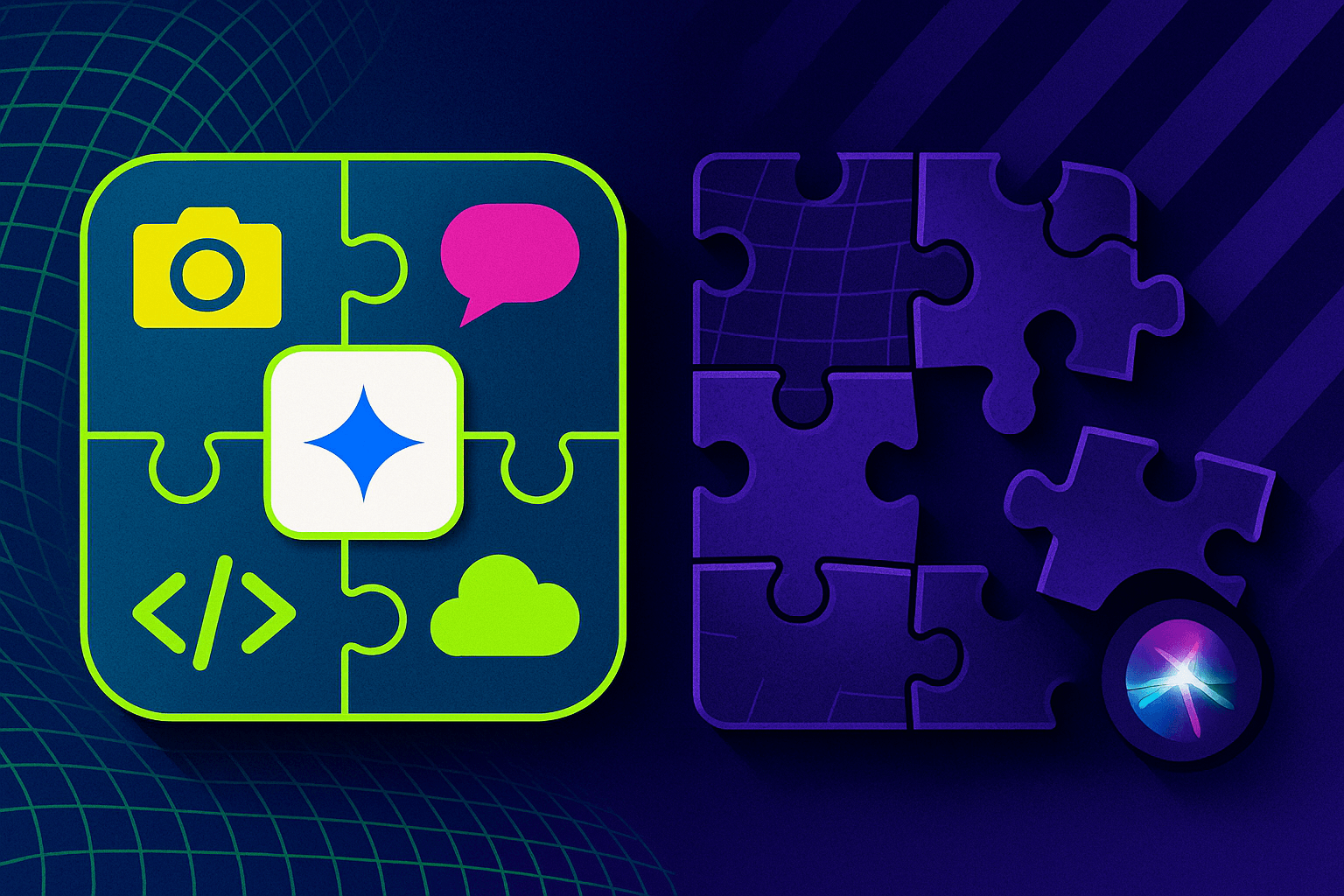Google Gemini is everything Siri never was

Google is building Gemini as a unified AI platform with a clear architecture and business model, while Apple finds itself stuck with Siri—caught between technical debt, internal upheaval, and the burden of its own legacy.
At Google I/O 2025, Gemini took center stage. The Gemini brand appeared in nearly every demo, on every device, and in every sentence from Sundar Pichai and his team. According to Google, seven million developers now work with Gemini models, and monthly token throughput has jumped from 9.7 trillion to 480 trillion tokens in just a year—a fiftyfold increase. Gemini has moved beyond being a product name to become the operational layer powering Android, Chrome, Workspace, XR headsets, cloud APIs, and even Google Search.
The model family stretches from Gemini Nano and Flash to the latest Gemini 2.5 Pro. At the high end, Gemini 2.5 Pro leads benchmarks like the US Math Olympiads and LiveCodeBench, analyzes camera streams in real time, writes code, controls websites, and can even generate podcasts.
Siri: Two brains, no progress
Apple’s AI story looks very different. Siri is still running on a hybrid architecture insiders call “two brains”: an old, rule-based system with a small generative language model layered on top. This patchwork of legacy code and new tech has led to what developers describe as a never-ending “Whack-a-Mole” of bugs—fix one, and three more pop up elsewhere, according to Bloomberg.
But the problem is deeper than just bugs. The architecture itself blocks any real progress. Apple is quietly building a completely new LLM architecture in Zurich to eventually replace Siri’s outdated foundation, but until then, Siri is stuck in a holding pattern.
The result: The long-awaited Siri 2.0, initially planned for iOS 18.5, has been pushed back to iOS 19 in spring 2026 at the earliest. Internal tests show core Siri features working only 66 to 80 percent of the time. Reuters reports that Apple CEO Tim Cook replaced former AI chief John Giannandrea with Mike Rockwell—a hardware manager best known for his work on Vision Pro. The Siri myth outlived its actual capabilities, and over time, it has eroded trust.
Gemini is a platform, Siri stays an add-on
The difference between the two systems runs deep. Siri launched in 2011 as a feature to help sell iPhones. In 2025, Gemini is a cloud-native product designed to generate revenue on its own. Google offers two paid Gemini tiers: Gemini AI Pro for $19.99 and AI Ultra for $249 per month—both directly tied to the latest models. Millions of developers also access Gemini through its API.
Google’s road to Gemini was paved over several years: first with LaMDA in 2021, then the multimodal MuM, the experimental Bard in 2023, and Gemini 1.0 at the end of the same year. With Gemini 1.5 Pro, Google finally caught up to OpenAI. Now, with 2.0 Pro and 2.5 Pro—including a new “Deep Think” mode—Google is firmly in the lead.
Google is also rolling out new services like Flow (for AI-powered video production) and Jules (an asynchronous coding agent), all built on top of Gemini, Veo, and Imagen. Developers get instant access to these tools through a full SDK and cloud access via Vertex AI. Siri, by contrast, remains a closed system, with a limited intents API and only basic third-party integration.
Gemini isn’t just another Siri, it’s the opposite: platform-wide, relatively open, and aggressively iterating. While Apple is still trying to move on from a 14-year-old voice system, Google is already shipping multimodal agents embedded in camera apps, chat interfaces, coding environments, and XR headsets. AI is no longer a feature—it’s the foundation.
AI News Without the Hype – Curated by Humans
As a THE DECODER subscriber, you get ad-free reading, our weekly AI newsletter, the exclusive "AI Radar" Frontier Report 6× per year, access to comments, and our complete archive.
Subscribe nowAI news without the hype
Curated by humans.
- Over 20 percent launch discount.
- Read without distractions – no Google ads.
- Access to comments and community discussions.
- Weekly AI newsletter.
- 6 times a year: “AI Radar” – deep dives on key AI topics.
- Up to 25 % off on KI Pro online events.
- Access to our full ten-year archive.
- Get the latest AI news from The Decoder.